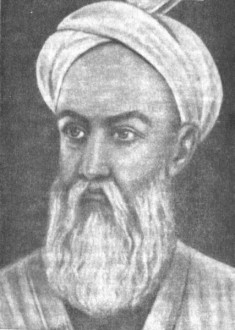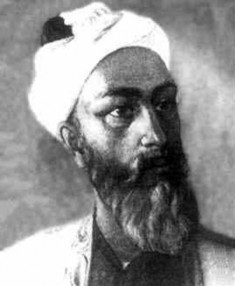Avicenna (also known as Pūr Sinɑ) was a Persian philosopher who was known as a polymath, which is a person with a significant amount of knowledge on a range of different subjects. He wrote roughly 450 different treatises on various subjects. He is considered one of the greatest philosophers of the Islamic Golden Age.
Early Life of Avicenna
The life of Avicenna is recorded in only one source, his autobiography. He did not write the work himself, but dictated it to his disciple Jūzjanī. Since there is no other source to verify what is in the autobiography, it is impossible to determine how much is fully accurate and how much is alliteration. In general, it is possible to draw a reasonable and realistic portrait of the man and his early beginnings.
We know that Avicenna was born around 980 A.D. in the village close to Bukhara, which is located in what is now modern-day Uzbekistan. His father had served as a governor and this allowed his father to offer Avicenna many educational opportunities. Historians are not sure what Muslim school of law Avicenna belonged to, although theories do exist connecting him to several different ones.
At a very young age, Avicenna invested a significant amount of time studying the Qur’an and mathematics. He met a traveling scholar who schooled Avicenna in the basics of medical treatment for the sick. While a young teen, his inquisitive mind tried to make sense of the Metaphysics of Aristotle.
He could not understand it so he began to expand his study of the material by reading other works about it. This would lead to a journey into the study of philosophy. The journey eventually led to him becoming a writer and philosopher of great esteem.
The primarpy profession of Avicenna was medicine. He formally studied to become a physician and, by the age of 18, he was a practicing doctor.
The Works of Avicenna
 While Avicenna had written roughly 450 treatises, a significant number of them have been lost. More than 200 of them do remain with 40 dealing with medicine and 150 dealing with philosophy. A number of the works also dealt with astronomy and astrology and he also crafted poetry. Of all his written works, there are two that stand out as his seminal achievements: The Canon of Medicine and The Book of Healing.
While Avicenna had written roughly 450 treatises, a significant number of them have been lost. More than 200 of them do remain with 40 dealing with medicine and 150 dealing with philosophy. A number of the works also dealt with astronomy and astrology and he also crafted poetry. Of all his written works, there are two that stand out as his seminal achievements: The Canon of Medicine and The Book of Healing.
The Canon of Medicine deals with infectious and sexually transmitted diseases. The work also describes suggested steps for quarantining such problems before they get worse. Many different diseases are examined in this work and suggestions for treatments are provided. A section of the book also covers the topic of good hygiene.
The Book of Healing might be considered his greatest work of all. This is a massive encyclopedia that seeks not to offer medical insights into treating common ailments. Rather, it is a work intended to help treat the common ailments that might afflict the soul. In a way, it could be deemed a work that seeks to teach self-development, which would not be far removed that the theories professed by Socrates and others in past civilizations.
There are many different components to The Book of Healing. Earth science and chemistry would be two main areas the book covers. However, it is in the section on psychology that the more interesting philosophical components emerge. The text delves into subjects related to the mind, moods, perceptions, rationality, and logic. It could be said the work covers virtually every topic related to psychology imaginable. While this might be an overstatement, the truth remains that the book is quite vast in terms of its material.
As a philosopher, Avicenna wrote a great deal on subjects related to logic, reason, metaphysics, and science. His prolific and diverse writing career certainly earned him the title of polymath.
Later Days of Avicenna
The last years of the life of Avicenna saw him serve Abu Ja’far ‘Ala Addaula in the capacity of scientific advisor and physician. As he aged, he began to suffer from a colic-related disease. He was advised to slow down his busy life, but he refused. Eventually, his health grew worse and worse. He eventually passed away in June of 1037.
